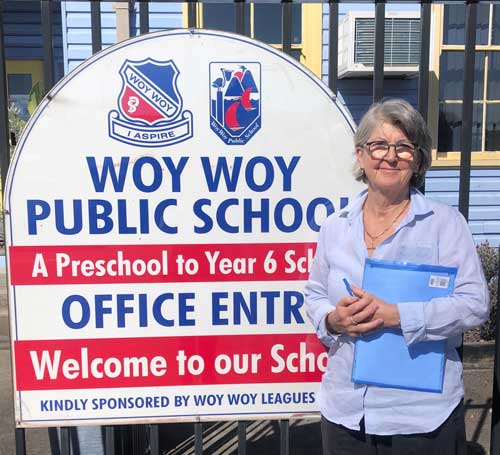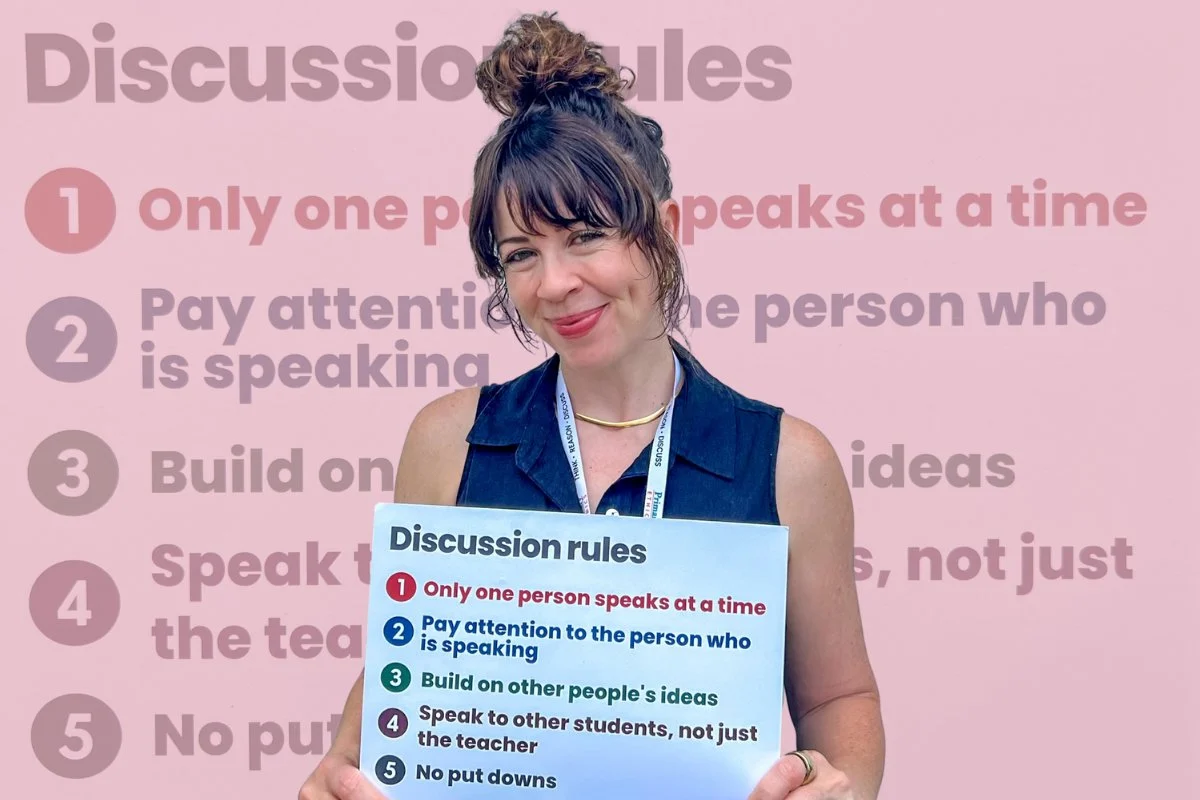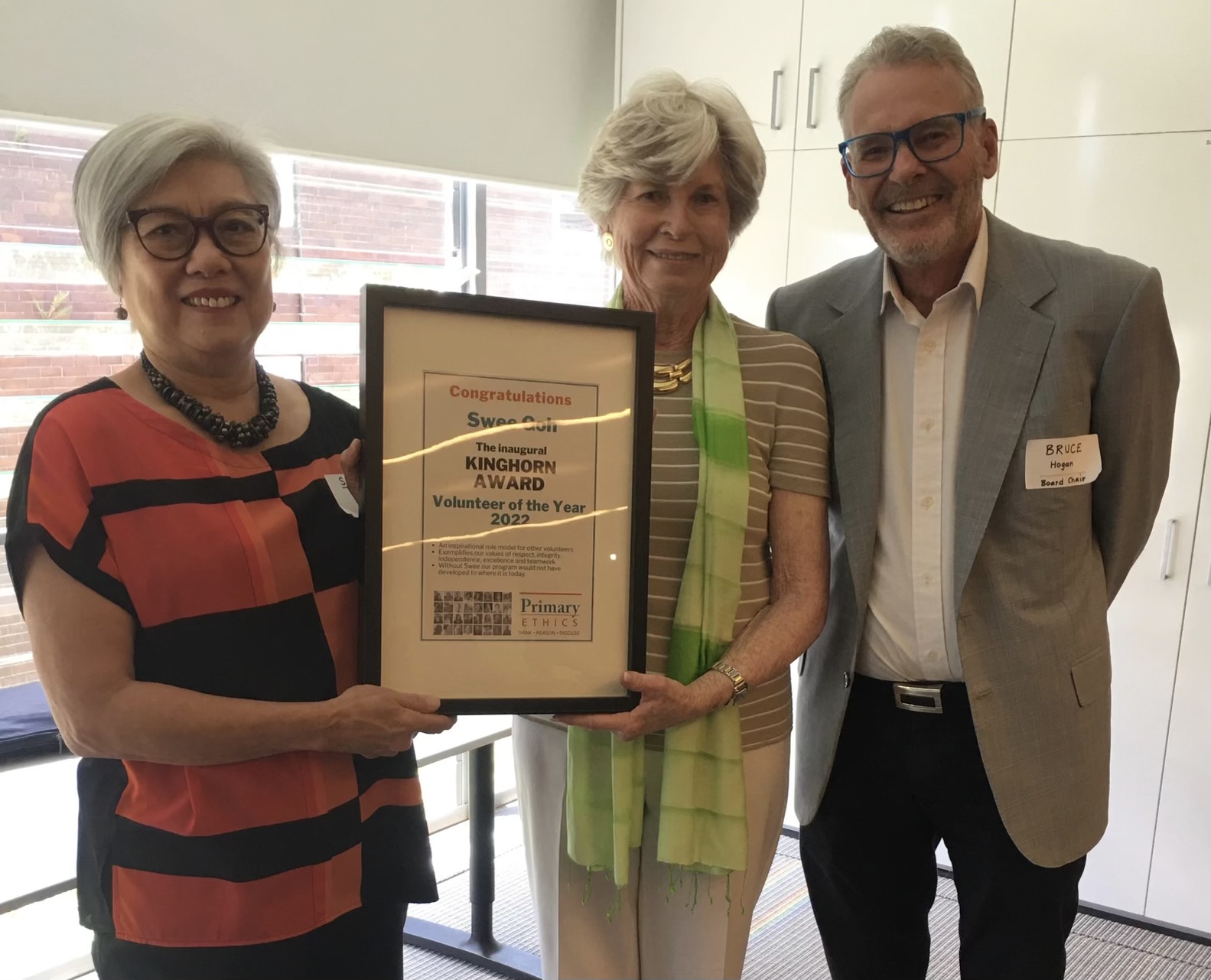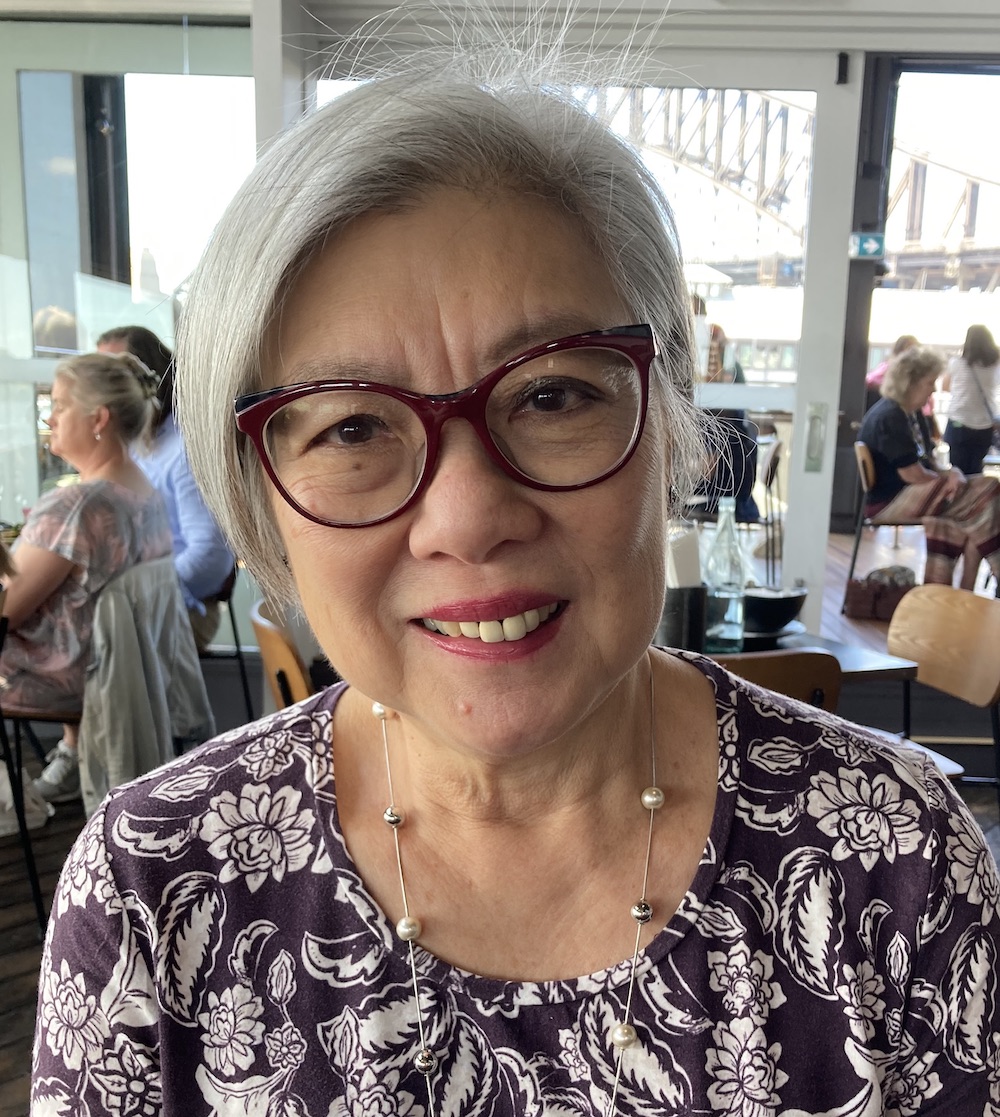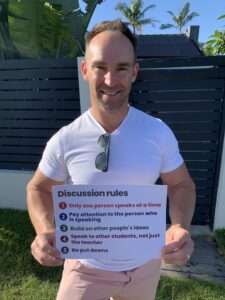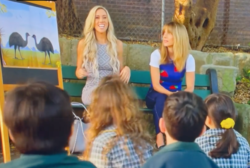Barb La Ganza: Kinghorn Award 2023
“Barb is a workhorse and superstar volunteer.”
Barb La Ganza is the Kinghorn Volunteer of the Year 2023. Barb, who’s been an ethics volunteer for nine years, is currently an ethics teacher and coordinator at one Sydney northern beaches school, as well as teaching ethics at two others. At one of her schools she teaches three back-to-back classes every week.
Barb was presented with her award at a lovely gathering in December 2023. Read excerpts from her acceptance speech below.
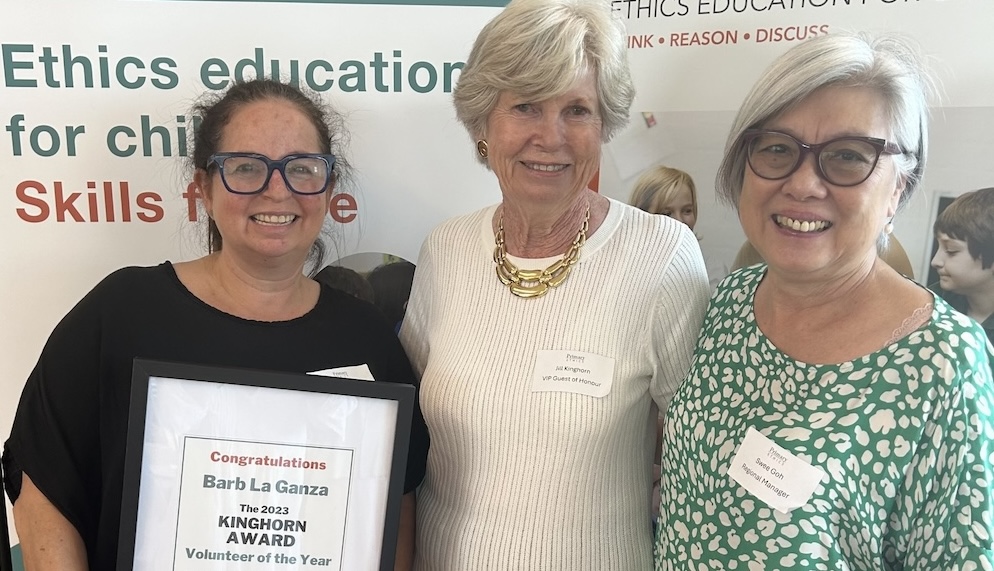
Barb is always ready to go the extra mile … Barb has an encyclopaedic knowledge of the curriculum at all stages. She has mentored me and many other ethics teachers. She is always willing to share her knowledge. She has a calm encouraging manner. She is inspirational.
Barb’s story: “My ethics journey started when my son was in year 1. He brought home a note on bright red paper to say that ethics was going to be offered at Elanora Heights Public School and I was so excited I filled in the form, wrote ‘yay’ with a smiley face on it and sent it off with him. A few weeks later I found the form scrunched up at the bottom of his bag – it hadn’t made it to the channels that were allocating SRE classes. I then somehow found out that if you teach for Primary Ethics, your kids will be included on the class roll. And so here I am nine years later!
“One of my most memorable experiences in the classroom was when a kid came every week to class and sat quietly and read a book. He was neurodiverse and I didn’t think he was engaged at all as he never looked up from the book or joined in at all. Until term three, when he answered a question. It was so heartwarming to know he had been present in his own way all along.
“My favourite topic of all time is Stage 3 Homelessness, but it’s also the one I find the hardest to teach, as I teach in three schools in very privileged areas. Another favourite is the Stage 2 topic when a young boy had to go and make carpets to get money for his family instead of going to school. Getting the kids to tie their shoelaces starts out as fun and easy for the kids, but after tying their shoelaces over and over and over again for even just five minutes, you can see that they can imagine how someone might feel if they had to do that all day long.
“One of my Stage 3 kids asked me, quite incredulously, why I teach ethics if I don’t get paid. Well, there are not many opportunities to volunteer in the kids space – loads for elderly or homelessness. The curriculum is incredible and I love connecting with the students and hearing their points of view. Community is very important to me and I now belong to three communities of ethics teachers as well as the three schools I teach at. I learn so much from both the kids and my fellow teachers and it really makes me feel like a valued member in my local community. Nothing nicer than your students seeing you in the shops with their parents and greeting you.
“There is such a range of experiences from Kindergarten kids who can’t even read your name badge but who aren’t as filtered in their responses as the older children, to the stage 3 participants who have some incredibly insightful contributions. And my daughter who has just finished school will start teaching ethics this year which is so lovely to see her be inspired to volunteer in her community too.
“I am proud to be an ethics teacher and hope I can continue to be a volunteer and mentor to others in the Primary Ethics space. I look forward to continuing to be a part of my three school teams even when I am old and grey (although I am actually both those already!)
“Thank you to Primary Ethics and the Kinghorn Family. I am so grateful to be recognised for this award. I know I was amongst some impressive competition and a debt of gratitude goes to my teams plus my co-ordinators Joy and Dina for nominating me and saying such kind words to support their applications. Thank you in particular to my area manager Sandra, who has supported me since I took on the role of co-ordinator in 2022. Whilst I am not one to be motivated by accolades and awards, it really touched me to be recognised as a volunteer of note and my certificate sits proudly in my home on display for all to see.”
Barb is one of those volunteers who just ‘gets it done’. She will go out of her way to ensure that all classes are covered every week, not just at the school where she is coordinator, but also for the two other schools she teaches in. She is efficient and a great communicator. Her team adore her as do other volunteers in the region, as she is so amiable and genuinely helpful.
